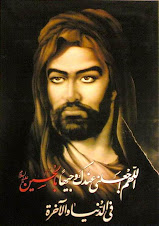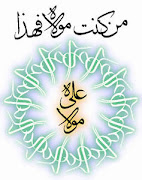In the Name of Allah; the Most Compassionate, the Most Merciful “ Allah and His Angels send blessings on the Prophet, O you who believe! send your blessings on him, and solute him a thorough salutation”. (33:56) One of the best ways to know the personality of great men is to study their literature and listen to their words. As Imam Ali states in Nahjul-Balagha : "Man is hidden behind his tongue” meaning by our words we introduce ourselves not with our certificates. Different people according to their job use different jargons. Politicians have their own jargons, as physicians do, as drivers do etc. The jargons of truck drivers are different from professors. Therefore, when people talk you can more or less depending on your skills in this field can tell which class of society do they belong to.
Today, being the birthday anniversary of Imam Reda (a.s.) I would like to present to you a very fragrant flower from the garden of Imam Reda , i.e. a wisdom word of him. The Hadith is regarding the meaning of Salawat, something that we every day offer many times. However, many of us may not know enough if any about the significance of it.
First of all lets read the Hadith:
Sheikh Sadouq one of our distinguishing Olama' who was living in the 4th century AH has written a book named ‘Oyoun-Akhbarul-Reda' meaning ‘the fountains of the wisdom words of Imam Reda' . I quote the Hadith under the consideration from this book.
Imam Reda (a.s.): “O Allah ! send your blessings onto the one that Daily Prayers is honored with having the Salawat on him'.
Salam and Salawat on the Prophet is an established fact in the Quran. In Sura 33 Aya 56 we recite:
“ Allah and His Angels send Salat on the Prophet, O you who believe! send Salat on him, and solute him a thorough salutation”. (33:56)
As far as I know sending Salam and Salawat to the prophet of Islam, is one of the distinguishing characteristics of our Prophet, of which the previous prophets were deprived. Muslims across the world from the time the above Aya has been revealed up to the Day of Great Judgment are bound to send their Salawat onto the Prophet of Islam. Muslims five times a day when they call for Adhan and Eqama and even in their daily Prayers send their Salawat onto the Prophet of Islam.
This is due to the Divine Promise that “And We raised high for you your esteem” 94:4)
The Etiquette of Presence
When you are at the presence of a highly respected person you use high titles, like : His Eminence, Dr. Sh. etc. However, when he is absent and we are talking about him we may not bother about those titles. In Islamic Erfan the abpve expression is used firstly for Allah (s.w.t) and then for 14 Infallible. Muslim Gnostics believe they are and they should be always at the presence of Allah and the 14 infallible, and hence, they always mention those name with high respect. I don't ever remember that Imam Khomeini (r.a.) ever mentioned the name of Allah (swt) without any of His Divine Attributes.
Salawat on the Prophet and his pure progeny comes in this regards.
The Virtues of Salawat:
1. the most valuable deeds in your Scale:
2. An atonement for the sins:
“Whoever, can not make an atonement for his sins, then he should repeatedly send Salawat on the Prophet and his Ahlul-Bait, for it destroys the sins thoroughly.”
3. A key to the grant of supplication:
There are many Hadiths stating that in order to have your supplication granted start your supplication with Salawat and end it with Salawat. Because, Salawat is an absolutely granted supplication and Allah (swt) is more merciful than to accept the beginning of your supplication and the end of it , but does not grant the one in the middle.
4. Remembering the Prophet is equal to remembering Allah:
“Whoever remembers God will receive 10 rewards, and whoever remembers the Prophet will receive 10 rewards, for Allah has joined His Messenger to Himself.”
According to a Hadith fro Imam Reda (a.s.) Salawat is equal to Tasbih, Tahlil and Takbir.
5. The best Word (Dhikr) in the Holy Mosque:
Someone came to Imam Sadiq (a.s.) and said to him that he visited the Holy Mosque in Mecca . During his rituals he could not remember any other supplication except Salawat. The Imam replied you had remembered the best supplication.
6. Salawat ,a treatment to amnesia.
It is practically proven that Salawat will treat the forgetfulness.
7. Daily Prayers is invalid without Salawat.
All of the Maraje' agree that Salawat in Tashahod is compulsory and on the condition it is not mentioned intentionally then the Prayers is invalid. Also, Shafe' and Hanbali hold the same opinion for the second Tashahod. Salawat in the universe:
The entire universe is asking the blessings for the Prophet. ‘Allah and His Angels are sending the blessings to the Prophet'. This is why the Prophet is ‘the blessings for the universe'. Following this natural process the believers are recommended to send the blessings onto the Prophet.
As a matter of fact, all of the Islamic rules are harmonious with the natural laws. That's why Islam is called the religion of nature (Fetrat). The universe is constantly asking the blessings for the ‘blessing of the world' and therefore the believers are also recommended to follow this natural law.
The Meaning of Salawat:
P1: Salawat is the plural form of Salat which simply means ‘to call' (Do'a). The reality of calling is that the person who calls tries to attract the attention of the one who is called to. This type of attracting the attention if it comes from a higher is called Rahmat (blessing) and if it comes from a lower is called Do'a (pray).
P2: It is an established fact in Islamic Erfan that the existence of the Prophet Mohammad (saww) is the first existent came from Allah. In other words, his existence is on the peak of the cone of the creation. That means the blessing of existence which contains all other blessings comes to the prophet first and then goes to others. The prayer of people to Allah does not reach Him unless through His Messenger, as the blessings of Allah does not reach His creatures unless through His Messenger.
Therefore, the Salawat of Allah to the Prophet since it comes from Allah the Omnipotent, He is sending the constant blessings to His Messenger and hence, the Prophet becomes ‘ Rahmatun-lelalamin' (blessing for the universe). As, the Salawat of people to the Prophet is to pray to God to send His blessings to them through the Prophet who is Rahmatun-Lelalamin.
Salawat of the Angels: As the Imam (a.s.) stated in the above Hadith , the Salawat of the angels is ‘Tazkeiah' . Tazkeiah means to exonerate and immaculate. What does it mean?
Each one of the angels is the resemblance of one of the beautiful attributes of God. No angel can ever resemble all Divine beautiful attributes. Whereas, the Prophet, being the most perfect man, held all of the Divine beautiful attributes. This is why his statue is higher than the angels. To this end, the angels are constantly exonerating and immaculating the Prophet in the sense that he is free from their efficiency. This is the meaning of prostration of the angels before Adam. That means the angels are the servants of the Prophet and his Ahlul-Bait. How to perform the Salawat:
What appears in the Quran about the way Salawat must be conducted is to send it on to the Prophet. There is nothing regarding ‘Aal' (his pure family).
To this end, the Shiite will be questioned as why and on which basis do they add ‘Aal' to the Salawat ?
The answer of this question lies down under the circumstances in which the Aya was revealed.
Most of the interpreters of the Quran have quoted that once the Aya under the consideration was revealed , the companions asked the Prophet of Islam; O Messenger of God ! we know how to say Salam to you but how should we send Salawat onto you (which was something new for them). The Prophet (saww) replied: Say:
‘Allahuma salle alaa Mohammad wa Aale Mohammad Kama Salayta Alaa Ibrahim Ennaka Hamidun Majid.'
Apart from numerous Sunni resources who have quoted the above Hadith, Imam Reda (a.s.) in a debating meeting with the distinguishing Sunni scholars has mentioned the Hadith and all agreed upon its accuracy.
More over, there are some other Hadiths in which the Prophet has warned people to send an incomplete Salwat onto him. When he was asked what did he mean by incomplete Salawat , he replied: that is to send a Salawat to me and not to join my Aal with me.
It is interesting to quote that Muslim in his Sahih has opened a chapter under the heading:
‘ Chapter of Salat on the Prophet'
He has mentioned only two Hadiths in that chapter about the way the Salawat ought to be conducted. In the both Hadiths it is mentioned to say: Mohammad and Aal Mohammad. However, it seems Muslim himself or perhaps the publisher has ignored the contents of the chapter and when on the top of the chapter the name of the Prophet has been mentioned it is typed in front of it : Sallalahu alayhe Wa Sallam, the ‘Aal' is omitted.
In short, one of the reasons that the Prophet (saww) added his ‘Aal' to his name could be the Aya of Mobahila. | 




